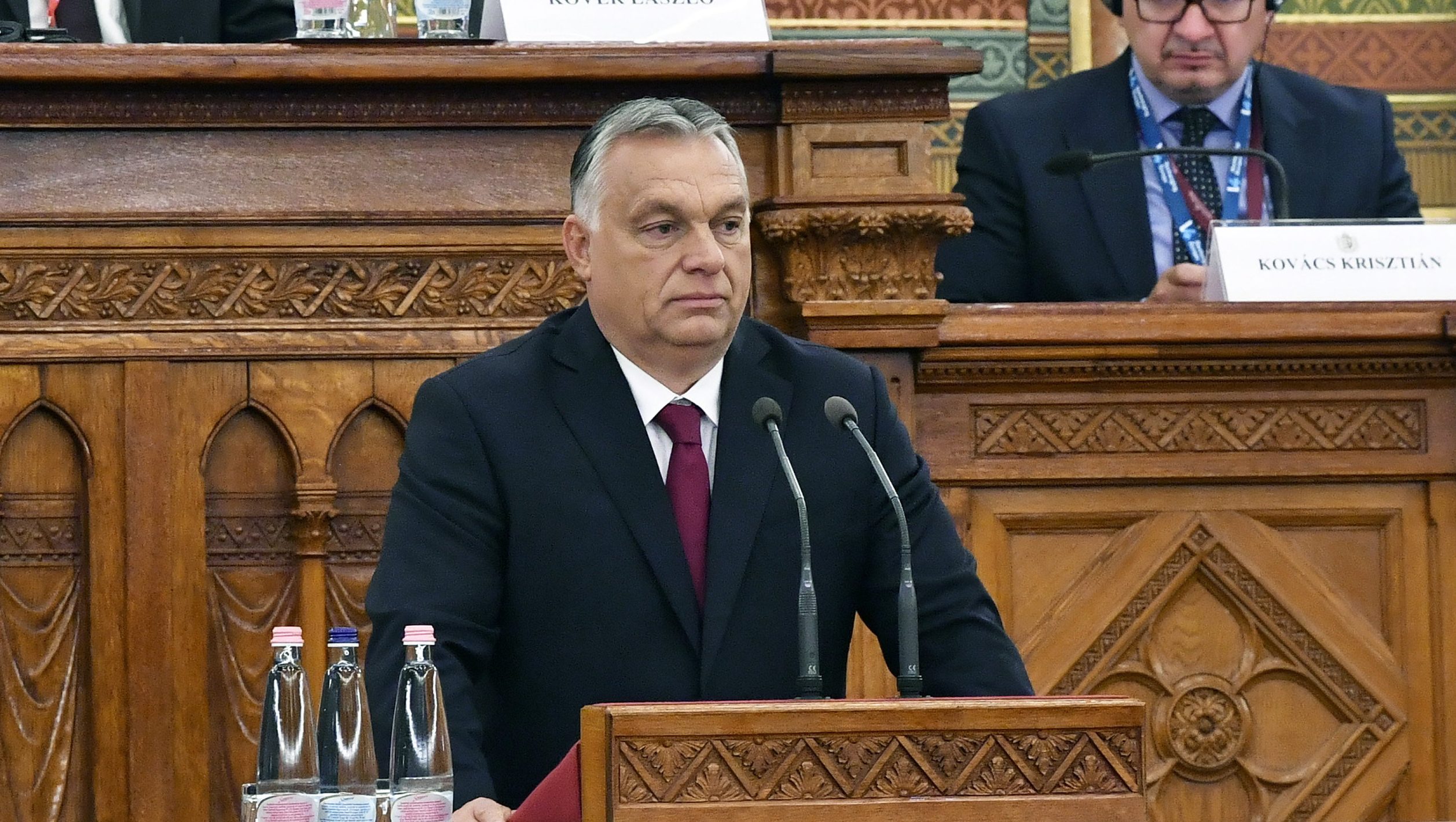
Viktor Orbán stressed at a conference of the parliamentary speakers of Southeast European countries and the V4 that instead of turning the Balkans into a buffer zone, the region should be integrated into the European Union. At the same time, he took the view that what is happening now is not an integration policy, but “something that they’re trying to replace an integration policy with”.
He pointed out that the commissioner responsible for the enlargement of the EU “is doing his best in vain” because the actual integration of the Balkans requires political and strategic decisions which are to be adopted not by commissioners and not even by the European Commission, but by the European Council comprised of the heads of state and government of European countries. “Until they decide to integrate the Balkans, we will continue to witness a prolonged process which becomes lost in details; a process which focuses on regulatory problems instead of strategic issues; a process which is referred to as talks, but which is in fact intended as a stalling tactic,” he warned.
He said today there is no will among the heads of state and government of Western European countries for the further enlargement of the EU which is a serious strategic mistake. In his view, at the same time, the whole of Central Europe continuously and persistently stands for the enlargement of the European Union and the European integration of the Balkans.
He took the view that the Balkans are the next great opportunity for the European Union, the Balkans could be the EU’s next great economic engine, and Western Europeans will not be able to maintain their living standards without the integration of the Balkans.
“If the peoples of the Balkans are given a chance, then the same as the Visegrád countries, within a few years they will pick up the pace, will reinforce their economies, and the real growth, real economic growth will come to the European Union from the Balkans,” the Hungarian Prime Minister stated. He added that the EU has a greater interest in the Balkans’ membership than the peoples of the Balkans themselves, not only from the viewpoint of security, but equally from the viewpoint of the economic interests of the West.
If they are unable to connect the Balkans’ life force and aspirations to the European economy, they surrender an enormous opportunity, he stated. Therefore, he encouraged Balkans countries to stand up for their demand for EU membership with maximum self-confidence and self-esteem.
He also drew attention to the fact that if the predecessors of the incumbent Western leaders had not opted for enlargement at the time, today the economy of the European Union would be much weaker as today growth and excess performance come from Central Europe.

He pointed out that if the Central Europeans were not members of the European Union, living standards in Europe and Western Europe would be substantially lower than they are at present. The combined trade of the four Visegrád countries with Germany is double the volume of German-French trade, and triple the volume of German-Italian trade, he argued.
He took the view that it is no exaggeration to state that today the German economy would crumble without Central Europe.
The Prime Minister proposed that the V4 and the Balkans countries build the entire European continent’s most dominant economic region together. “We have the opportunity to do that, and believe me, the moment will come when – similar to the countries of the V4 when the European economy is no longer able to function without us – the European economy will no be longer able to function without the Balkans countries,” he said, adding that for this the Balkans must join the EU, must integrate via the Central European region, and must make themselves indispensable for the German, Italian and French economies as well.
He stressed that the V4 look upon the Balkans not only as a simple economic target, but as a strategic opportunity which provides security and enables the enlargement of the entire European Union’s most dynamically developing region.
“We want railways, we want roads, we want bridges, we want to connect our energy systems together, we want these countries to not just receive foreign investors, but to produce, to make competitive goods, and to then come to us as investors,” he said.
He stated that for the peoples of the Balkans the road to the European Union leads via Central Europe, and in this they can count on Hungary and Central Europe in general, but in particular in connection with the enlargement of the European Union.
Speaker of the House László Kövér added after the Prime Minister’s address that since 1990 25 million workers aged between 25 and 45 years had left the region – extending from the Baltic countries through Central Europe to the Balkans – for Western Europe, and according to World Bank estimates, up to 2050 another 20 million could leave for the West.
According to experts, this “workforce drain” has cost the region’s countries minimum a thousand billion euros, meaning that “our region has financed Western Europe’s economic welfare with a sum of this magnitude”. Therefore, every Member State in the region “has a right to show self-esteem when Brussels blackmails them,” he continued, as they do with Poland or Hungary, “the funds conveniently referred to as grants” or the post-pandemic recovery facility.
He added that the states which have yet to join, too, have the right to remind Brussels that “they are not burdens of the future, but are already now resources of the European Union”. Admission is not a gift, but compensation for the fact that the region served the benefit of the European Union already before its accession,” he pointed out.


